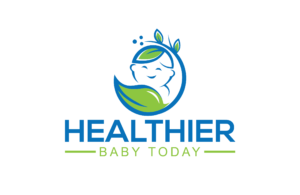It’s natural for parents to worry about potential health concerns, especially regarding baby allergies, even if bringing a new bundle of joy into the world is a magical experience. Baby allergies can be a source of stress for many parents, but with the proper knowledge and proactive measures, you can ensure your little one grows up healthy and happy. In this article, we’ll delve into baby allergies, exploring common triggers, symptoms, and, most importantly, effective ways to manage and navigate this aspect of parenting.
Table of Contents
Common Baby Allergies: Identifying the Culprits

Baby allergies can manifest in various forms, ranging from mild irritations to more severe reactions. Parents must be vigilant and observant, especially during the early months of a baby’s life when the immune system is still developing. The most common allergens that affect babies include dairy, eggs, peanuts, tree nuts, soy, wheat, and fish. Environmental factors such as pollen, pet dander, and dust mites can also contribute to allergic reactions in infants.
Recognizing the Symptoms
Understanding the symptoms of baby allergies is the first step in effective management. Look for signs like skin rashes, hives, persistent coughing, wheezing, nasal congestion, diarrhea, vomiting, or excessive fussiness. If you notice any of these symptoms, it’s crucial to consult with a pediatrician promptly for a proper diagnosis.
The Importance of Professional Guidance
Diagnosing baby allergies can be a complex process, and self-diagnosis may lead to unnecessary stress. Consulting with a pediatrician or allergist is crucial for the accurate identification of allergens and for developing an effective management plan. They may recommend various diagnostic tools, such as skin prick or blood tests, to pinpoint the specific allergens affecting your baby.
Managing Baby Allergies – A Holistic Approach

Once you’ve identified the allergens triggering your baby’s reactions, the next step is implementing a comprehensive management plan. This involves a combination of lifestyle adjustments, dietary changes, and creating an allergen-free environment.
Dietary Modifications
Managing baby allergies often requires dietary modifications, especially if the allergies are food-related. If your baby is diagnosed with a food allergy, work closely with your pediatrician or a registered dietitian to create a suitable diet plan. Sometimes, breastfeeding mothers may need to adjust their diet to exclude allergens, or formula-fed babies may need specialized hypoallergenic formulas.
Remember to incorporate Baby Allergies-friendly foods into your little one’s diet, ensuring they receive the necessary nutrients without triggering allergic reactions. Regular check-ins with your healthcare provider will help monitor your baby’s growth and adjust the diet plan accordingly.
Creating an Allergen-Free Environment
Environmental factors can also contribute to baby allergies. Creating an allergen-free environment at home can significantly reduce the risk of allergic reactions. Use allergen-proof bedding, keep the living space well-ventilated, and invest in air purifiers to minimize airborne allergens. If pets are present in the household, ensure they are bathed regularly, and designate pet-free zones within the home.
Education and Awareness
Empower yourself with knowledge about baby allergies to make informed decisions. Attend parenting classes or workshops that focus on managing allergies in infants. Understanding the triggers, symptoms, and preventive measures will give you the confidence to navigate this aspect of parenting effectively.
Additionally, educate friends, family members, and caregivers about your baby’s allergies. Creating a supportive network ensures that everyone involved in the baby’s care knows the necessary precautions and can respond appropriately in an emergency.
Regular Check-ups and Monitoring
Regular check-ups with your pediatrician are essential to monitor your baby’s progress and make any necessary adjustments to the management plan. Keep a diary of your baby’s symptoms, diet changes, and environmental exposures to provide comprehensive information to your healthcare provider.
Navigating Baby Allergies Beyond Infancy

As your baby grows, so does their exposure to the world, and managing allergies becomes an evolving process. Navigating baby allergies requires ongoing vigilance, but with the right strategies, you can help your child build resilience and adapt to their environment.
Introducing Solid Foods
As your baby transitions to solid foods, it’s essential to continue monitoring for potential allergens. Introduce new foods one at a time, waiting a few days before introducing another to observe any adverse reactions. Gradually exposing your baby to various foods can help prevent the development of new allergies and expand their palate. If you have concerns about specific allergens, consult your pediatrician before introducing them into your baby’s diet.
Allergy-Ready Snacks and Meals
As your child becomes more independent with eating, you can prepare allergy-ready snacks and meals to ensure their safety, especially when away from home. Provide clear instructions to caregivers, teachers, and other adults involved in your child’s care about their allergies and the necessary precautions. Pack allergy-friendly snacks and meals to prevent accidental exposure and promote inclusivity in various social settings.
Allergy Emergency Action Plan
Collaborate with your pediatrician to create an allergy emergency action plan. This plan should outline specific steps to take in case of an allergic reaction, including administering medication such as epinephrine if needed. Share this plan with everyone involved in your child’s care, including family members, teachers, and childcare providers. Having a well-communicated and rehearsed action plan can make a significant difference in managing allergic reactions effectively.
Teaching Allergy Awareness to Your Child

As your child grows, educating them about their allergies and how to manage them responsibly is crucial. Teach them to recognize the signs of an allergic reaction and how to communicate their needs to adults. Encourage open communication about their allergies, fostering a sense of responsibility for their well-being. As they enter school age, involve them in discussions about their allergies so they understand the importance of adhering to dietary restrictions and recognizing potential allergens.
Monitoring and Adjusting
Regularly monitoring your child’s allergies is essential, even as they become more independent. Keep track of any changes in their symptoms, and be proactive in adjusting their management plan if necessary. As your child matures, their allergies may evolve, and new triggers may emerge. Regular check-ups with healthcare professionals will provide the guidance needed to adapt to these changes and ensure your child’s continued well-being.
Manage your Baby’s Allergies
Understanding and managing common baby allergies is an ongoing journey that requires adaptability and resilience. By staying informed, collaborating with healthcare professionals, and fostering open communication with your child, you can create an environment where allergies do not define their experiences but become a manageable aspect of their overall health. Remember, each child is unique, and there is no one-size-fits-all approach to managing allergies.


